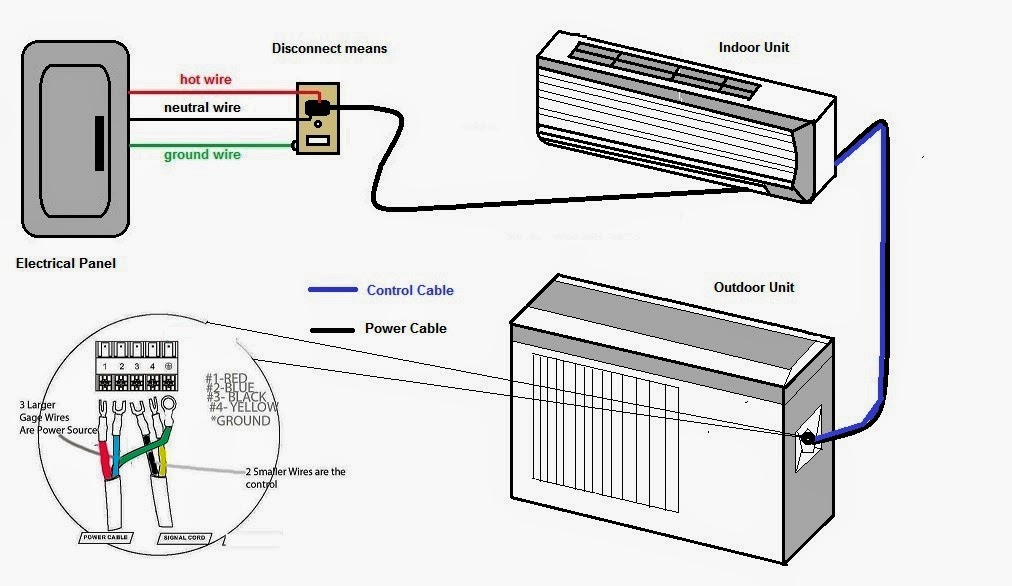5.2 The Electrical wiring in Split Packaged units
The Electrical wiring in Split Packaged units consists of 3 main parts as follows:
- High voltage part (power part),
- High voltage control and motors part,
- Low voltage control part.
1- High voltage part (power part):(see Fig.22)
 |
| Fig.22: Electrical wiring of Split Packaged unit - High voltage part |
The branch circuit will originate from one of the three pole Overcurrent protective device OCPD included in an electrical panel.
Then go through raceway system (conduits, ducts, …) to :
- A disconnect means of indoor unit (Air handler unit),
- A disconnect means of outdoor unit (condenser/evaporator unit).
2- High voltage control and motors part:(see Fig.23)
 |
| Fig.23: Electrical wiring of Split Packaged unit - High voltage control and motors part |
- This includes the high voltage wiring inside air handler unit and inside condenser/evaporator unit.
- Inside the air handler unit, the high voltage wiring powers the indoor fan, the heater and provide power for the transformer.
- Inside the condenser/evaporator unit, the high voltage wiring powers the outside fan and the compressor.
3- Low voltage control part:
This part has (2) mode for operation which are:
- A/C Mode,
- Heat Mode.
A- In the A/C Mode:(see Fig.24)
 |
| Fig.24: Electrical wiring of Split Packaged unit - Low voltage control part - A/C Mode |
The thermostat send signal in (2) directions as follows:
- Via the Y wire to turn on the outside fan and the compressor,
- Via the G wire to turn on the indoor fan.
B- In the heat Mode:(see Fig.25)
 |
| Fig.25: Electrical wiring of Split Packaged unit - Low voltage control part - heat Mode |
|
Also, the thermostat, in this mode, sends signal in (2) directions as follows:
- Via the G wire to turn on the indoor fan,
- Via the W wire to turn on the heater.
So, the complete wiring diagram will be as in Fig.26 below:
 |
| Fig.26: Electrical wiring of Split Packaged unit - Complete Circuit |
Note:
The thermostat usually have (5) positions which are Off – Cold – Auto – Heat – on.
You can find in below some examples for wiring diagrams for split packaged units with different starting methods in Fig.27.
 |
| Fig.27: Electrical wiring of Split Packaged unit with different Starting Methods |
|
| 

































